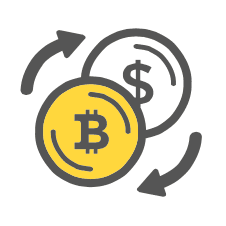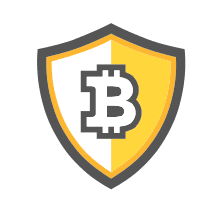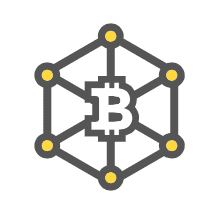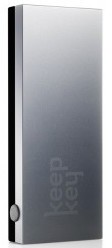What is Bitcoin?
Bitcoin is electronic money which can be securely exchanged over the internet. Just as no single agency controls the internet, there’s no central authority in charge of Bitcoin. Any individual, group or business can use Bitcoin as freely as they access the internet.
Sending bitcoins is a lot like sending an email. Instead of messages, money can be rapidly sent to any registered address. Like email, no special knowledge is required. Basic computer or smartphone skills are all it takes to use Bitcoin. And as long as you keep your passwords safe, nobody else can access your bitcoins.
Bitcoin is called many things: peer-to-peer currency (as it runs on a network protocol where users connect only to other users), digital cash (as it’s directly transferred to your trading partner), private money (as it’s issued and verified by network users) and cryptocurrency (as it’s secured by cryptography).
- What Bitcoin Does and How
- How is Bitcoin Different from Existing Currencies or Gold?
- How Much is Bitcoin Worth?
- What are Bitcoin’s Other Advantages?
- What Can Bitcoin Buy?
- Who Created Bitcoin?
- Is Bitcoin Safe?
- Is Bitcoin Legal?
- Is Bitcoin a Scam or Ponzi Scheme?
- How to Get Bitcoin
- Frequently Asked Questions
What Bitcoin Does and How
Bitcoin enables any two people, anywhere in the world, to rapidly and directly exchange funds. The only information necessary to a transfer is the receiver’s “address,” which is like their email address or bank account number.
Addresses may be created for free, instantly, and without submitting any personal information. All that’s needed is free Bitcoin wallet software, which is compatible with all major operating systems and devices.
How is Bitcoin Different from Existing Currencies or Gold?
Bitcoin differs from regular money in that no central authority is involved in its issuance or control. Rather, new bitcoins are steadily issued to the individuals or companies known as “miners,” to compensate them for verifying and recording all Bitcoin transactions.
As no government or corporation controls Bitcoin, a user’s holdings cannot be frozen or confiscated. As no central bank is involved, inflation won’t be a factor as Bitcoin’s issuance is capped at 21 million (whereas fiat money may be issued in unlimited quantities).
Unlike gold, Bitcoin is purely electronic and so much easier and cheaper to transport and store.
How Much is Bitcoin Worth?
Just like any other currency, Bitcoin’s value rises and falls over time. The market is still deciding the value of this new form of money, so Bitcoin’s price is famous for large moves in either direction.
At the time of writing, bitcoins (a lower case “b” is used to refer to the currency, an upper case “B” for Bitcoin the network) are worth several hundred dollars each. Price has exceeded a thousand dollars in the past. Check a real-time price feed for the exact current price.
What are Bitcoin’s Other Advantages?
Bitcoin is available 24 hours a day, 7 days a week and 365 days a year. The system hasn’t had any significant downtime since its launch in January, 2009.
Bitcoin works anywhere there’s an internet connection. Borders and economic sanctions don’t affect Bitcoin.
Bitcoin allows for the transfer of tiny or huge sums and everything in between. The minimum spendable unit is one satoshi, or 0.00000001 of a Bitcoin. Besides the number of bitcoins the sender controls, there’s no limit to how many bitcoins may be sent.
Fees are really cheap no matter how far or how many bitcoins you send. A flat fee of under 10 cents (US) ensures your transaction is processed as a top priority.
What Can Bitcoin Buy?
Just about anything and everything. Major companies like Dell, Microsoft and Overstock accept Bitcoin, as do small companies, as well as individual retailers and service providers. Bitcoin’s suitability to online purchases makes it an increasingly popular choice for ecommerce.
Who Created Bitcoin?
Nobody knows for sure. Bitcoin’s creator used the pseudonym “Satoshi Nakamoto” to announce and discuss his invention. By disguising his identity, the creator protected himself from criminals or any group which might pressure him to change Bitcoin to their liking. Satoshi suddenly disappeared in 2011, leaving the project in the hands of other developers. If Satoshi returns, even he would need the community’s agreement before he could alter Bitcoin.
Is Bitcoin Safe?
The Bitcoin code is open-source, which means it’s available for inspection by anyone with the requisite programming skills. Bitcoin represents a tempting multi-billion dollar prize to hackers but this prize remains unclaimed. It can therefore be concluded that Bitcoin is much safer than credit cards, PayPal and other traditional money transfer services (which are frequently hacked or defrauded for much smaller amounts). As an added bonus, Bitcoin doesn’t collect your personal information, so it can’t fall into the wrong hands.
The lead developers can’t change Bitcoin’s code without consensus from the community. A super-majority of users and miners either accepts a change or it doesn’t make it into Bitcoin’s code.
Is Bitcoin Legal?
There are very few nations which outright ban Bitcoin. It’s entirely unregulated in many countries. Those nations which do regulate it generally use a light touch. Consult this list for further details.
Is Bitcoin a Scam or Ponzi Scheme?
No. Firstly, Bitcoin makes no get-rich-quick promises. Investors who buy and hold Bitcoin do so only because they believe the technology holds great future potential. It’s unnecessary to invest in Bitcoin in order to use it though. Users may use Bitcoin only to send money and then instantly convert it back to the national currency of their choice.
While it’s true that certain individuals and companies within Bitcoin have proven dishonest, you can’t blame money for how it gets used. Bitcoin is perfectly safe for anyone who practices good wallet security and avoids scammers.
How to Get Bitcoin
This website exists to help you find the most convenient option for your location and preferred method of payment. Click your country for specific local recommendations or choose a payment service to find sellers who accept it. Our unique exchange finder allows you to search by both country and payment method.
There are 3 standard ways to get Bitcoin:
-
Purchase from a variety of exchanges around the world. One of the most popular exchanges for North Americans and Europeans is Coinbase, which makes the buying process simple for new users.
-
Buy directly from Bitcoin holders, aided by services like LocalBitcoins.
-
Sell goods or provide services for Bitcoin.
Frequently Asked Questions
This site features an extensive Knowledge Base which provides comprehensive information on Bitcoin. If you’re still new to Bitcoin, we particularly recommend the following articles:
Categories















